Review for Moribito: Guardian Of The Spirit - Part 1
Introduction
Director Kenji Kamiyama and Production I.G. have been very good to me. Whenever I get an inkling that this anime stuff may not be all that it's cracked up to be, usually during an episode of Bleach, I just put in a disc of Ghost in the Shell: Stand Alone Complex to remind me why this medium is so amazing. Awesome animation, amazing music, divine storytelling, it is anime at its best, and as it usually happens with anime of that quality, the creators aren't always so prolific. I made a point to keep an eye out for what Kenji Kamiyama and Production I.G. would collaborate on next, and when I heard that it would be Moribito: Guardian of the Spirit, I made a mental note to obtain the series with alacrity. That was four years ago. As has so often happened in recent times, the tale of Moribito's release in the West has been one of false starts and faltering schedules. By the time it finally got to the US, I had completely forgotten who was behind it, and took it at face value as just another period anime drama. That isn't my favourite genre. It was going to be a Geneon release, but then Geneon went bye-bye, and it was then picked up by Media Blasters, who then went and released in the ridiculously expensive, archaic format of 8 bare bones DVDs, with only three episodes per disc. It took over a year for the show to be released in its entirety in the US.
If that had been the release format in the UK, there would have been rioting in the streets… well, an anime fan in Doncaster may have rioted in the street, and with MVM now offering value for money in terms of disc content versus price, it would have been a dumb time to change. MVM have decided that this is the right time for them to change! But this is actually a change for the better. They have joined Manga and Beez in offering their series in two-disc, half season sets. For a R.R.P. of £24.99, you can have the first half of Moribito: Guardian of the Spirit. Just thinking about that gives me a little head-rush. And when the check discs arrived, and I saw the names Kenji Kamiyama, Kenji Kawai, and Production I.G. in the blurb, and I had a brief glimpse of the animation, I'm not ashamed to say that I whimpered a little. Looking in the back of my mind, buried under all that fluff, anime trivia, and Star Trek was that little mental note, crumpled up and forgotten, telling me to get this show as soon as possible. MVM are making that exceedingly easy too, with Part 1 out at the end of September, and the concluding half released the following month.
Arriving in Yogo after two years away, the spear-woman Balsa has nothing on her mind but getting her spear repaired. She certainly doesn't expect to rescue a young prince who has been thrown into a raging torrent. The prince's mother invites her to the palace to thank her, but it's more to lay a burden upon her than to endow her with riches. Prince Chagum has been possessed by a water demon, at least that is the opinion of those who know of his nightmares, and it's the Mikado's duty to rid the land of water demons. So it is that Chagum's father has ordered his death. The second Queen pleads with Balsa to take her son and keep him safe. It's a good thing that Balsa has a self-appointed mission to save eight souls. If she can protect Chagum, that will be the eighth soul. The palace is set ablaze as the perfect cover for an escape, but there are those in the court who are too shrewd to fall for such a ruse. The populace may be kept appeased by announcing the prince's death, but there's still the matter of establishing it as fact, so seekers are sent in pursuit. Balsa and Chagum have to find shelter in the town with a couple of Balsa's friends, Toya and Saya, and they also find help from a herbalist named Tanda. Hiding in plain sight, Balsa goes about raising Chagum as a common member of society, but the water demon's egg that is gestating in Chagum hasn't finished with him yet. Also, looking after Chagum reminds Balsa of her own past. Meanwhile, there are those in the royal court who realise that with the 'death' of Chagum, the ill omen that lies over the land hasn't lifted as yet. The great drought is still imminent, as two worlds draw ever closer together.
The first half of the series, thirteen episodes in all, is presented across two discs from MVM.
Disc 1
1. Balsa, The Female Bodyguard
2. Hunters, Hunted
3. Fight to the Death
4. Torogai's Letter
5. Secret Plan, The Blue Hand
6. To Die in the Misty Blue
7. Chagum's Resolve
Disc 2
8. The Swordsmith
9. Shuga Thirsts
10. Soil and Heroes
11. Flower Wine For Tanda
12. The Summer Solstice Festival
13. Neither Human nor Tiger
Picture
Moribito gets a 1.78:1 anamorphic transfer. It is an NTSC-PAL conversion as is usually the case for anime in the UK, but it's not too bad when it comes to it, with the ghosting and judder quite minimal. It certainly doesn't harm the animation any, and this is one gorgeous animation. Moribito is a rich, lush and vibrant show, with a gorgeous palette of colours, and a constantly high frame rate. The character designs are distinctive and memorable, while the emphasis on conveying emotion through subtle animation is astounding. There is so much detail here; a raised eyebrow, pursed lips, half a smile, it all comes across clearly. As much as the voice actors, the animated characters here are performing as well. It's also a very dynamic anime, there's always some aspect of motion, some energy to the scene. It's indicative of a lavish budget, dedicated animators, or both.
Sound
You have the option of DD 5.1 English, and DD 2.0 Japanese, along with translated subtitles and signs. I was very happy with the original language track, as always, but from what I sampled of the English dub, it was certainly acceptable, if not remarkable. The 5.1 surround is definitely preferable when it comes to the show's action, ambience and music, but the dub is a little average for a show of this quality. It certainly isn't up to Ghost In The Shell standards. Particularly jarring is the idiomatic English in a rather fantastic setting. The music is excellent, Kenji Kawai does the honours for the show's score, and it's very much a piece of the story, hard to categorise out of context, while the show's opener from L'Arc en Ciel is just the rousing theme to get you jazzed for another episode.
Extras
All you get are trailers for Slayers Revolution and Mahoromatic. Moribito was also just as barren in the US, which is a shame, as a show of Moribito's quality needs extra features lavished upon it. But to compensate, widescreen Lina Inverse! Woo!
Conclusion
Moribito: Guardian of the Spirit is the best anime that I have seen this year, although I am hard pressed to explain just why that is. Yet in a year that has already given us Romeo X Juliet, Soul Eater, Evangelion 1.11, and Rin: Daughters of Mnemosyne, and is yet to offer us treats like Baccano and Durarara, Moribito stands head and shoulders above them all. In fact, the only offering this year that I think will rival Moribito in my affections is Eden of the East, and it's no surprise that is also a Kenji Kamiyama show. It's a well-worn cliché, but if you are only going to invest in one anime show this year, then Moribito ought to be at the top of your list. Just don't expect me to tell you why that is in any coherent manner.
Certainly, Moribito looks like half a dozen shows set in a Feudal era, and there's certainly a degree of romance harking back to a simpler time of aristocracy and peasantry, warriors, farmers and merchants, superstition and mysticism. It also makes for some nice action sequences when it comes to sword fighting, or in this case spear fighting. The story itself is hardly original, throwing opposites together in the face of adversity, a sort of anime buddy movie dynamic of the sort that Samurai Champloo and Michiko to Hatchin do so well. Here it is the hardened warrior Balsa taking on the strong-willed prince Chagum, and establishing something of an unconventional surrogate maternal bond. And as the series unfolds, it becomes increasingly apparent that the world of Moribito most certainly isn't our own, the back-story of some of the characters takes on greater relevance, and what seemed earlier to be just superstition actually becomes aspects of the world that will have a part to play as the story unfolds. In some ways this reminded me of Utawarerumono.
That may tell you how derivative Moribito is, but probably does little to sell it to you. It doesn't hurt that Moribito is one of the most beautiful anime that I have seen; the animation is simply divine and lush. It has an intricate and detailed world design, the character designs edge more towards realism than traditional anime stereotypes, and in motion there is subtlety and nuance that is rare in the medium. These are characters that can convey a wealth of meaning by just slightly altering their facial expressions. Just by smoothing her brow and smiling slightly, Balsa goes from fearsome warrior to caring mother figure. The action sequences are something special too; with a degree of thought and effort put into the fights that feature films aspire to. And the world of Moribito has the most beautiful skies I have ever seen in animation.
The story is deceptively simple at first glance. You have what looks like a feudal era setting, with what appears to be primitive superstition causing father to turn against son, his duties as protector of the nation demanding that he take Chagum's life because he harbours the spirit of a demon (proved when the boy talks in his sleep), and a distraught queen demanding that Balsa protect her son. The young prince and the bodyguard fake his death and go on the run, hiding in plain sight to make a life together. Except when they are fleeing there are two moons in the sky, and it quickly becomes clear that this isn't 'our' world. It isn't crass superstition, but an established fact that Chagum indeed harbours the egg of a water demon. The nation of Yogo is an interesting one as well, with the aristocracy apparently of a different race from those they rule, the Yakoo. The nation of Yogo was established when the first king killed a water demon, and that role has been part of his mantle ever since. He and his family are guided by Star Readers, scholars and oracles that seek portent in the heavens. The Yakoo on the other hand are more at one with nature, and their mysticism revolves around Magic Weavers, who have their own way of foretelling the future. The Star Readers tell of a Great Drought that will devastate the nation if the water demon in Chagum isn't destroyed. The Magic Weavers have a different interpretation. Then there is the portent of the two moons, a sign of two worlds, Nayug and Sagu. Moribito isn't forthcoming with exposition, it lets its tale unfold naturally, and at the halfway mark there is plenty that leaves me scratching my head. But it is a show that compels you to keep watching to find out more.
The characters in the show are astounding, well rounded, written with depth and subtlety that makes you forget that you are watching an anime. Balsa is the most rare of anime characters, a strong female central role that doesn't rely on her sexuality. You can see echoes of the Major from Ghost in the Shell, but Balsa is very much a character defined by her experiences. An incident at an early age set her on her path as a bodyguard, swearing to save eight souls. But an encounter with the herbalist Tanda two years previously made her question herself, when he asked just how many lives she had taken to preserve those souls. Since then she has walked the far harder path of protecting life without taking it. Having to protect the young prince Chagum, that resolve is tested harder than before. Chagum could easily have been a spoilt and pampered prince, and indeed at first acquaintance he seems that way, ripped from his lofty position and cast down into the real world. But he quickly adapts to his new circumstances, and shows an inner resolve that matches Balsa's determination. There are some aspects of his past life that he finds harder to ditch though.
Tanda the herbalist, who has something of an unspoken and complicated past with Balsa, and the street-kid pair of Toya and Saya help them hide from the searchers, and also help Chagum settle into his new life as a commoner. Toya's more the typical stereotype of a wise cracking kid with street smarts, who dotes on his gentle and soft spoken, adopted sister Saya. There is also intrigue in the Royal court and among the Star Readers, with particular interest on Shuga, the Star Reader whose job it was to mentor and tutor Chagum, who first noted the signs of the water demon, and whose guilt is beginning to overwhelm him. It isn't long before he's being censured by his superiors, and confronting Chagum's older half-brother Sagum over his personal effects. Then there is the Magic Weaver Torogai, who looks into Chagum and sees the water demon's egg, who warns the Star Readers to ignore the Water Demon at their peril, and who may just hold the key to how this will resolve.
The most appealing thing about Moribito though, is how the story evolves and unfolds. It's a little something of everything, a slice of life, action, comedy, drama that is hard to categorise, but very easy to enjoy. The first episode sets up the premise, while the next five entail the escape, which also go some way in introducing and developing the characters, and filling in the background of the world. The next seven episodes on the disc mostly follow Chagum and Balsa as they start their new life, with Balsa trying to teach Chagum how to be a commoner, but finding that there are some things that he simply won't compromise on. The odd thing is that these episodes are about the little things, Chagum learning to make friends, learning about gambling, Tanda having to dabble in a little astral projection to heal Saya, and Balsa and Chagum picking fights at the Summer Solstice Festival. But at no point do you feel that the main story has been forgotten. It's the measured pace, the attention to detail and the focus on character that just draws you in.
My favourite episode in this collection is also the least animated. Balsa and Chagum go to see a sword smith, to see about getting her spear repaired, except he's loyal to the Mikado, and suspecting Balsa is the fugitive and Chagum the prince, he feels obligated to inform. It's down to Balsa to try and convince him that they shouldn't be betrayed; yet it isn't exactly in her nature to plead or wheedle. The tension also rises when a couple of the royal guard arrive to pick up their weapons, and Chagum and Balsa have to hide in the back, uncertain whether they will be protected or betrayed. It's all about all sides getting their points across, through metaphor or through stories. It's about people sitting down and talking to each other, hardly the most effective use of animation. It's also the most engrossing, exciting and suspenseful episode of anime I have seen in quite a while, all accomplished through drama and voice actor performances, and I was at the edge of my seat.
That's why Moribito is the best thing since sliced bread. It's pitch perfect, immaculately paced, peerless storytelling. And it's for the stories that I started watching anime in the first place. You'd be an absolute mug to let this one slip through your fingers. Place your orders for part 1 of Moribito: Guardian of the Spirit post haste, and given that the collection ends on something of an emotional cliff-hanger for Balsa, I can't emphasise how grateful I am that MVM are releasing Part 2 just next month.
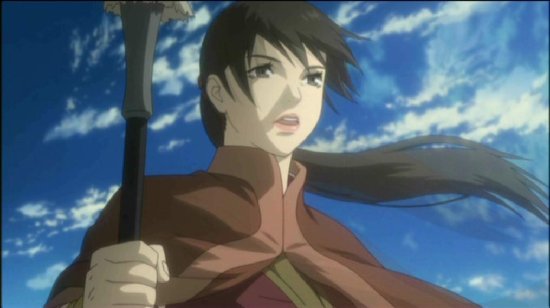
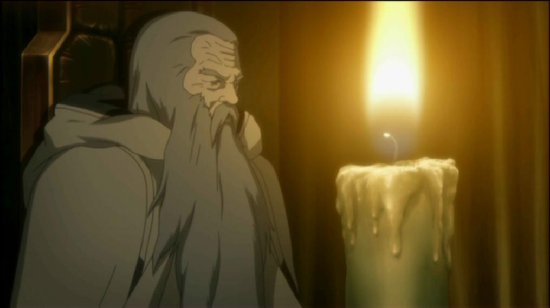
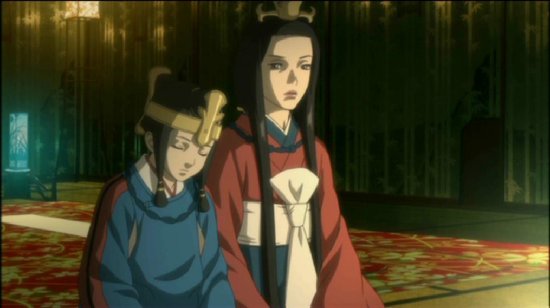
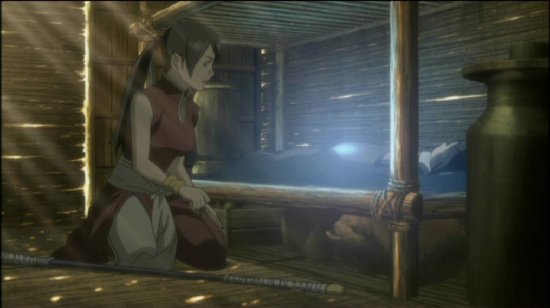
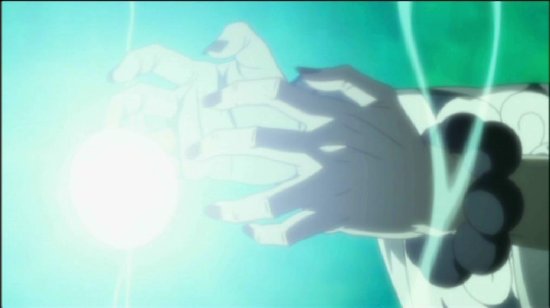
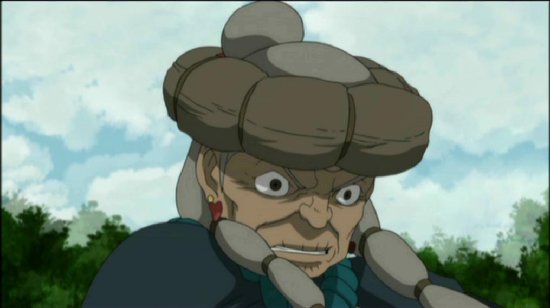
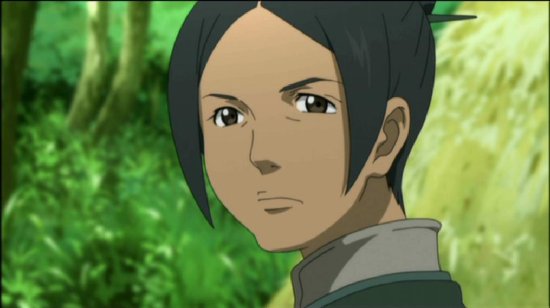
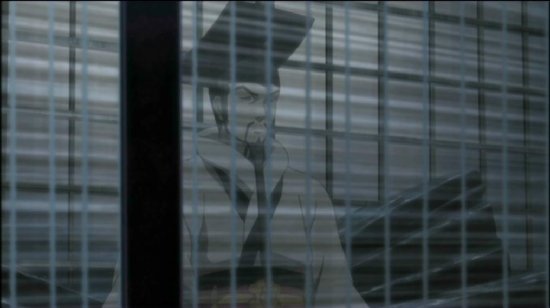
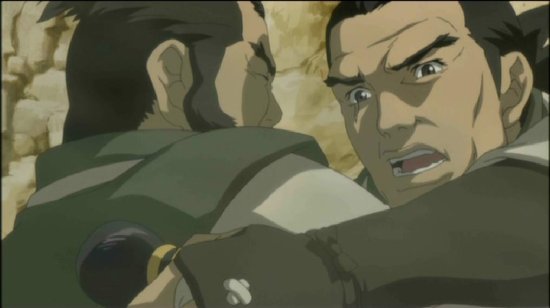
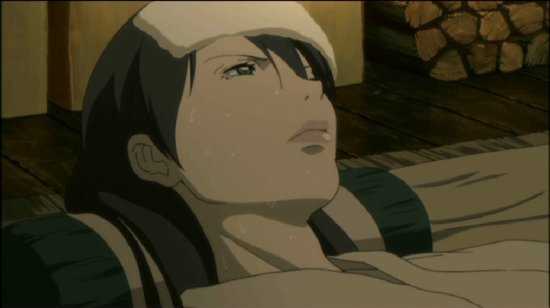
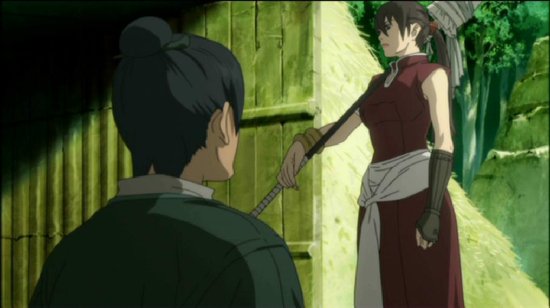
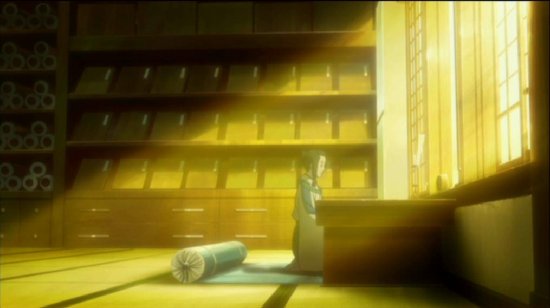
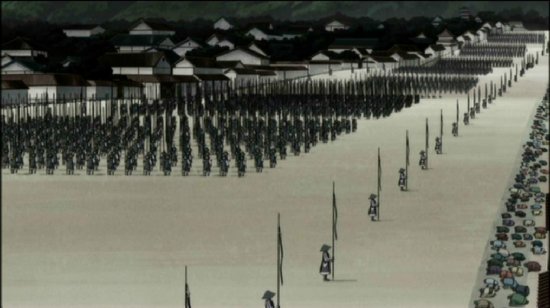
Your Opinions and Comments
Be the first to post a comment!